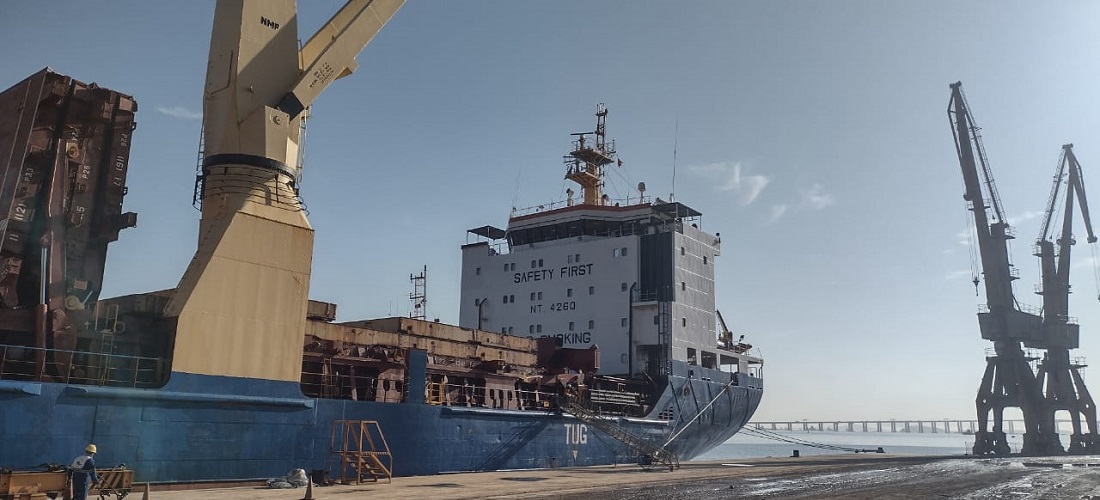
Wheat Terminal Operations Temporarily Relocated to Gamboa Pier in Rio de Janeiro
Nov, 08, 2023 Posted by Gabriel MalheirosWeek 202345
The Wheat Terminal of Rio de Janeiro Port (TTRJ) is operating in the new section of the Gamboa Pier while modernization works take place at the terminal’s wharf area. Since Saturday (4), the terminal has been offloading 15,000 tonnes of imported wheat from Argentina. The cargo arrived on the bulk carrier ship Lago do Lugano.
PortosRio, responsible for port management, highlighted that the section used by TTRJ was the first to be completed in the expansion and modernization works of the Gamboa Pier. With the closure of TTRJ’s wharf by the Port Authority for the final stages of the modernization works, the terminal’s operation was temporarily relocated to the section inaugurated in September.
The Gamboa Pier, inaugurated in 1910, is one of the oldest of the Port of Rio de Janeiro. The structural works, involving an investment of R$ 120 million, began last year and cover 600 meters of wharf – 290 meters of which have already been completed. The work is set to be completed by the first half of 2024.
The main goal of the works is to deepen the berths’ depth, allowing the operation of larger vessels. After the modernization of the Gamboa Pier, the Port Authority plans to carry out dredging, opening up opportunities for new businesses. The increase in the operational draft in this area will allow for better infrastructure utilization and increased profitability through the services with new cargoes and shipping lines.
Background – The section of the pier currently under construction was initially built with a metal foundation base and a double wall of granite ashlar stones filled with cyclopean concrete. This structure was designed and constructed with the techniques available at the time for a draft of 9 meters. However, due to the current requirement of at least 13.5 meters of draft for most ships, it became necessary to modernize these original structures as they would not withstand dredging.
-
Ports and Terminals
Jan, 26, 2021
0
Public hearings to define two new leases at Port of Paranaguá
-
Grains
Jun, 08, 2021
0
China soybean imports up 2.5% in May
-
Uncategorized
Mar, 05, 2020
0
Brazil’s Internal Revenue Service releases 2019 customs results
-
Meat
Jul, 28, 2023
0
Bans on U.S. poultry exports persist even as avian flu recedes


